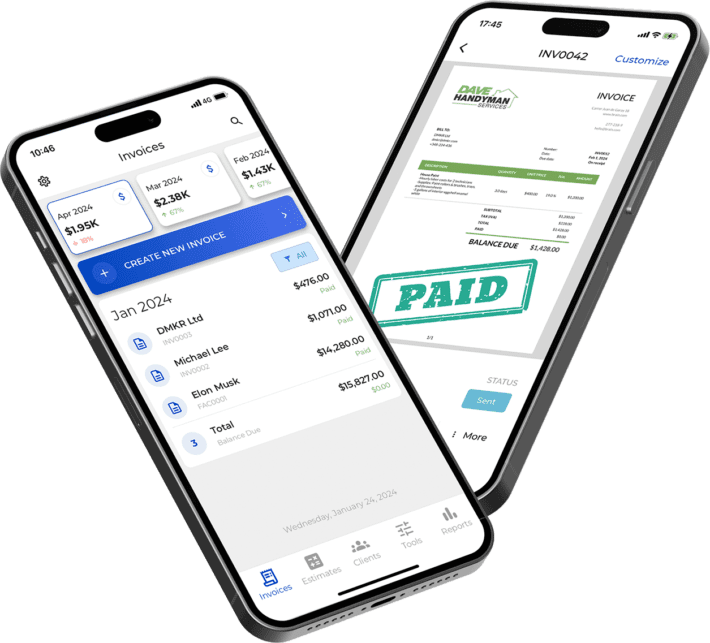How To Become A General Contractor: A Step-by-Step Guide

Table of Contents
- What Does a General Contractor Do?
- Types of Contractors
- Who Needs a General Contractor License?
- Requirements to Become a General Contractor
- How To Become a General Contractor: Step-by-Step
- How Much Does It Cost To Become a General Contractor?
- How Long Does It Take To Become a General Contractor?
- Common Mistakes To Avoid
- Become a Licensed General Contractor Now
- FAQs About Becoming a General Contractor
If you’ve ever coordinated subcontractors, ordered materials, or overseen a renovation from start to finish, you’ve already done much of what general contractors do every day. Becoming certified and licensed as a construction contractor gives you the authority to manage entire projects: legally, efficiently, and profitably.
In 2025, the demand for skilled contractors continues to climb across the U.S. Housing growth, infrastructure projects, and commercial builds mean qualified professionals are in high demand. Whether you’re a tradesperson looking to level up or a newcomer exploring career options, learning how to become a general contractor is a solid investment in your future.
In this guide, we’ll cover:
- What general contractors do
- Key license requirements and education paths
- How to apply for certification and exams
- Costs and timelines by state
- Common mistakes to avoid and FAQs
What Does a General Contractor Do?

A general contractor supervises construction from the ground up — hiring subcontractors, ordering materials, managing schedules, and ensuring code compliance. They’re responsible for budgets, safety, and delivering a finished project that meets the client’s expectations.
Typical duties include:
- Estimating project costs and creating proposals
- Securing building permits
- Managing subcontractors and labour teams
- Scheduling inspections and quality checks
- Communicating with clients and architects
Essentially, a licensed construction contractor acts as the central coordinator for every phase of a build from design to delivery.
Get Started with Invoice Fly’s Software
Invoice Fly is a smart, fast, and easy-to-use invoicing software designed for freelancers, contractors, and small business owners. Create and send invoices, track payments, and manage your business — all in one place.

Types of Contractors
Not all contractors work on the same kind of projects. The construction industry recognises several main types, each with distinct responsibilities and license requirements:
- General Contractors – Oversee the entire project, coordinate subcontractors, and ensure work meets codes and deadlines. They’re responsible for budgeting, permits, and project completion.
- Subcontractors – Specialists hired by general contractors to perform specific tasks like plumbing, electrical work, HVAC, or roofing.
- Specialty Contractors – Professionals licensed in one trade, such as flooring, painting, or concrete, often working directly for clients on smaller-scale jobs.
- Prime Contractors – Contractors who work directly with the client or project owner and may hire other general or specialty contractors underneath them.
- Construction Managers – Often involved earlier in the process, they plan, budget, and supervise construction from a management perspective rather than hands-on work.
Understanding these distinctions helps determine which license requirements and training paths you’ll need if you plan to move into general contracting or specialise in a specific trade.
Who Needs a General Contractor License?

Most states require a general contractor’s license for projects over a certain dollar amount or involving structural work. You’ll need one if you plan to:
- Manage commercial or residential construction jobs
- Hire subcontractors under your supervision
- Advertise or contract projects under your business name
Licensing ensures you meet each state’s license requirements for education, experience, insurance, and ethics. For official details, see How to Get a General Construction License.
Requirements to Become a General Contractor
The process to become licensed varies by state, but most follow a similar framework involving education, experience, and certification.
Education and Training
A college degree in construction management, civil engineering, or business administration can help, but it isn’t mandatory. Many successful contractors start with trade school or hands-on apprenticeships.
If you’re new to the field and wondering how to become a general contractor with no experience, begin by working under a licensed professional to gain project exposure.
Experience Requirements
Most states require between two and five years of verifiable work under a licensed contractor. You’ll need job references, project documentation, or tax records proving your experience.
Insurance and Bonding
Before approval, applicants must show proof of:
- General liability insurance
- Workers’ compensation coverage
- Surety bonds to protect clients and subcontractors
For a financial overview of coverage and cash flow, visit Contractor Cash Flow Management.
How To Become a General Contractor: Step-by-Step
The path to licensing is systematic but achievable. Below are the five core steps for anyone pursuing how to become a certified general contractor.
Step 1: Meet Education and Experience Requirements
Gather transcripts, diplomas, and letters of recommendation. States like California and Florida verify both technical knowledge and field hours before approving your application.
Step 2: Choose Your License Type
Pick between residential, commercial, or specialty categories. Residential licenses allow you to work on homes and small remodels; commercial licenses cover larger builds. Learn more about license options in How to Get an Independent Contractor License.
Step 3: Apply for a General Contractor License
Each state has its own board and process. Here’s how to get started in key states:
- How to become a general contractor in Florida: Apply through the Florida Department of Business & Professional Regulation; pass trade and business exams.
- How to become a general contractor in Texas: Apply at your city or county level. Texas doesn’t have statewide licensing, but municipalities such as Dallas and Houston set local standards.
- How to become a general contractor in California: Submit your application to the Contractors State License Board (CSLB) and pass law and trade tests.
- How to become a general contractor in North Carolina: Register with the North Carolina Licensing Board for General Contractors, providing proof of experience and insurance.
- How to become a general contractor in Georgia: Apply through the State Licensing Board for Residential & General Contractors. Georgia requires proof of financial responsibility and an exam.
For additional information, see How to Get a General Construction License.
Step 4: Pass the Contractor Exam
Nearly every state requires one or more exams covering building codes, safety, and construction law. Study guides and prep courses are available through state boards and professional organisations.
Applicants often use Contractor Estimate Templates to learn how to price jobs accurately which is a vital skill for exam and business success.
Step 5: Register Your Business and Get Insured
After passing exams, form your business entity (LLC, sole proprietorship, or corporation) depending on your structure and liability needs. For help deciding, visit LLC vs Sole Proprietorship for Contractors.
Once you register, obtain a tax ID, open a business bank account, and secure your insurance coverage.
Need an easier way to send invoices once you’re licensed? Try Invoice Fly’s Invoicing Software — it’s free and built for contractors.
How Much Does It Cost To Become a General Contractor?

Total costs range from $1,000 to $5,000, depending on location.
Typical expenses include:
- Application fees ($50–$300)
- Exam fees ($100–$300)
- Fingerprinting and background checks ($75–$150)
- Bonds and insurance ($500–$2,000 annually)
By state:
- Florida: Around $1,200 total
- Texas: About $800 (local registration + insurance)
- California: $1,500–$2,000 including bonds
- Georgia: $900–$1,200 depending on classification
How Long Does It Take To Become a General Contractor?
If you already meet experience requirements, the process usually takes three to six months from application to approval.
However, if you’re still completing training or apprenticeships, how long does it take to become a general contractor can stretch to three to five years in total — factoring in education, field hours, and exam scheduling.
Typical approval times by state:
- Florida: 3–4 months
- Texas: 1–3 months
- California: 4–6 months
- North Carolina: 4–6 months
- Georgia: 2–5 months
For a faster track, ensure all documentation is accurate and complete before submission.
Common Mistakes To Avoid
- Skipping exam preparation: Most applicants fail their first try due to underestimating difficulty.
- Missing insurance documents: Proof of liability coverage is non-negotiable.
- Unregistered entity: You must form an official business before approval.
- Ignoring continuing education: Some states require annual classes to maintain your license.
- Overlooking local rules: Even if certified, always confirm city and county requirements for permits and insurance.
For ideas on how to secure ongoing leads while you await approval, check Lead Generation for Contractors.
Become a Licensed General Contractor Now
Learning how to become a certified general contractor is the gateway to a rewarding, stable career in construction. With the right education, insurance, and documentation, you can move from hands-on trade work to managing multi-million-dollar projects.
Each state sets its own rules, but the process is straightforward when you plan ahead. From Texas to Georgia, California to North Carolina, following each step like education, licensing, and insurance, ensures your business operates legally and professionally.Once licensed, organize your operations with Invoice Maker to manage quotes, track payments, and stay on top of every project.
Get Started with Invoice Fly’s Software
Invoice Fly is a smart, fast, and easy-to-use invoicing software designed for freelancers, contractors, and small business owners. Create and send invoices, track payments, and manage your business — all in one place.

FAQs About Becoming a General Contractor
The average U.S. general contractor earns around $95,000 annually, though experienced pros can exceed $150,000.
Degrees in construction management, civil engineering, or business are common, but hands-on trade experience is equally valued.
Residential or small-project licenses are generally simpler than commercial ones, which require higher bonding and experience levels.
Education, verified experience, liability insurance, bonding, and passing the state exam form the basic qualifications.
Work as an apprentice or subcontractor, gather verified experience, and follow your state’s license requirements. Then manage finances with our Invoice Maker.
